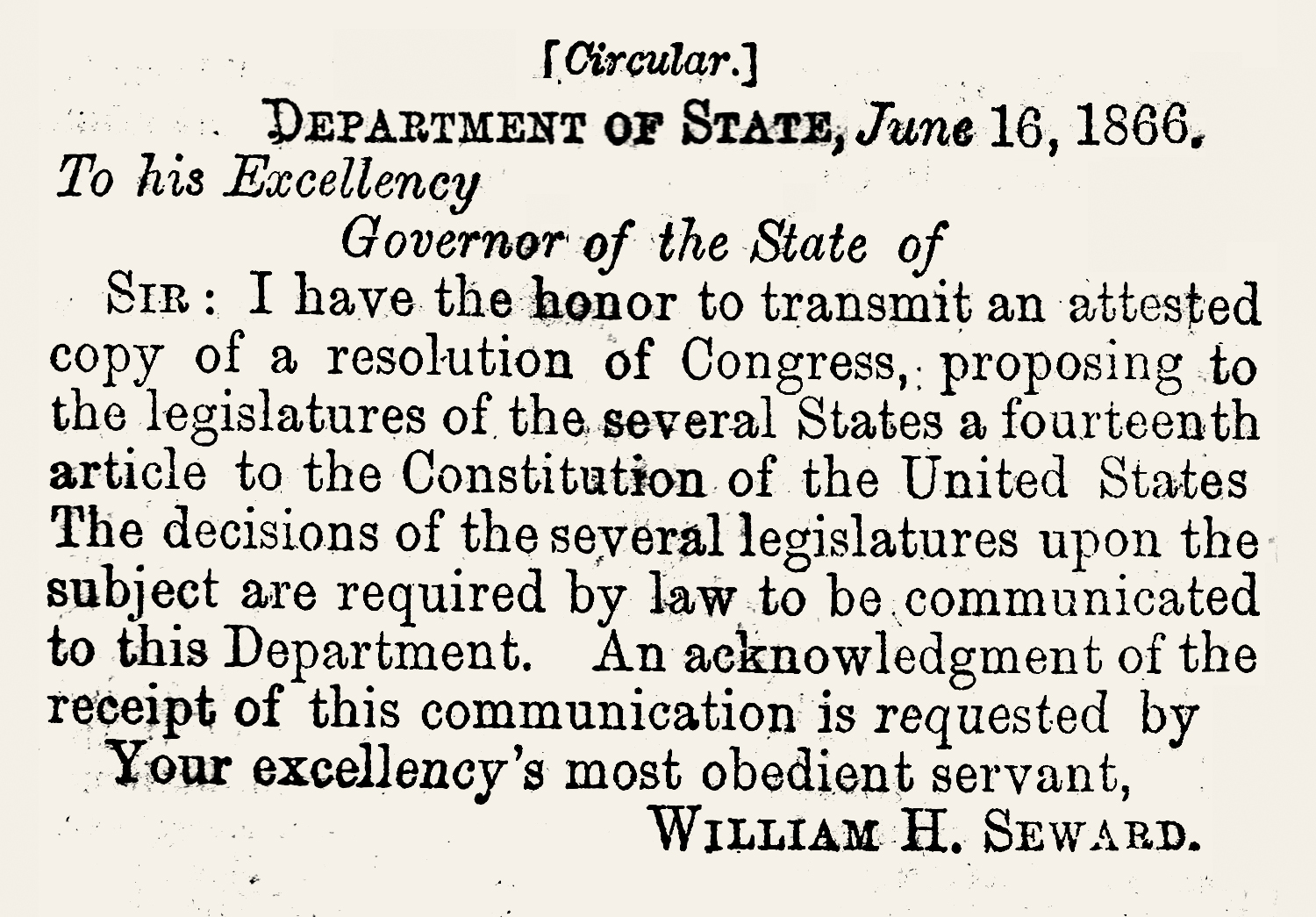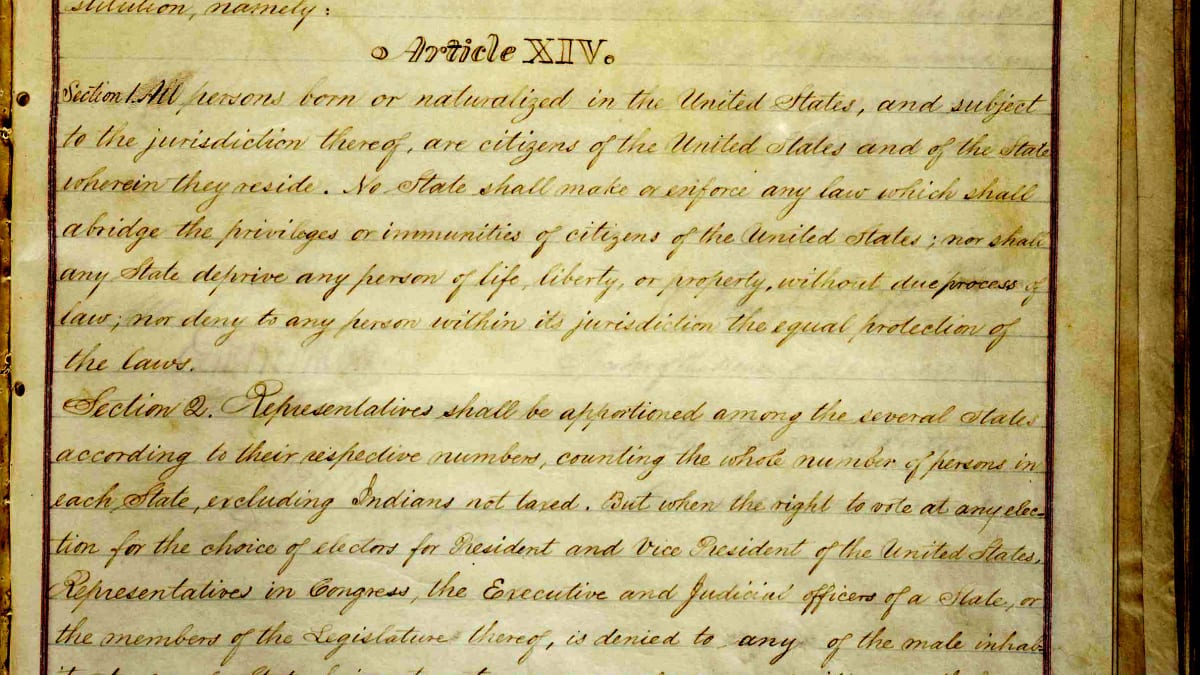The 14th Amendment: A Cornerstone of American Citizenship
The 14th Amendment to the United States Constitution, ratified on July 9, 1868, is one of the most pivotal and influential amendments in American history. As a cornerstone of American citizenship, it has shaped the country's understanding of equality, justice, and the rights of its citizens. The amendment's impact extends far beyond its original intention, and its relevance continues to be felt today, with implications for politics, society, and the rule of law.
In the aftermath of the Civil War, the nation was grappling with the challenges of Reconstruction. The abolition of slavery had brought a new era of freedom, but it also created a power vacuum that threatened the very fabric of American society. The 14th Amendment was born out of this need to establish a new framework for citizenship, one that would protect the rights of newly freed slaves and ensure that all citizens were treated equally under the law.
At its core, the 14th Amendment is a document of fundamental principles. It guarantees equal protection under the law, prohibits states from denying anyone life, liberty, or property without due process of law, and defines citizenship and the requirements for naturalization. These provisions have been the bedrock of American law for over a century and a half, and their influence can be seen in the civil rights movements of the 1950s and 1960s, as well as in contemporary debates about racial justice and police reform.
Understanding the Provisions of the 14th Amendment
The 14th Amendment consists of five sections, each with its own unique provisions and implications. Understanding these provisions is essential for grasping the full scope of the amendment's impact on American society.
Equal Protection Clause
The Equal Protection Clause, found in Section 1 of the 14th Amendment, is perhaps its most famous provision. This clause states that "no state shall make or enforce any law which shall abridge the privileges or immunities of citizens of the United States; nor shall any state deprive any person of life, liberty, or property, without due process of law; nor deny to any person within its jurisdiction the equal protection of the laws."
This clause has been the subject of numerous court cases, including the landmark decision in Brown v. Board of Education (1954), which declared segregation in public schools unconstitutional. It has also been used to challenge laws and policies that discriminate against marginalized groups, such as women, people of color, and the LGBTQ+ community.
Citizenship and Naturalization
Section 2 of the 14th Amendment defines citizenship and sets out the requirements for naturalization. It states that "a person declared and held to be a citizen of the United States by any other state, and at the time of such declaration and holding informed of such declaration and held the same, had never been a citizen of the United States, and was under twenty-one years of age, shall be admitted a citizen of the United States and of the state having such declaration made, and shall be entitled to all the rights of such citizen, including the right to vote."
This provision has been critical in shaping the country's approach to immigration and citizenship. It has been used to justify the denial of citizenship to those who were born abroad to American parents, as well as to challenge laws that restrict access to naturalization.
Deprivation of Life, Liberty, or Property
Section 3 of the 14th Amendment prohibits states from depriving anyone of life, liberty, or property without due process of law. This provision has been used to challenge laws and policies that infringe on individual rights, including those related to voting rights, free speech, and capital punishment.
Enumerated Powers
Section 4 of the 14th Amendment grants Congress the power to enforce the provisions of the amendment through legislation. This provision has been used to pass laws that protect the rights of marginalized groups, including the Civil Rights Act of 1964 and the Voting Rights Act of 1965.
Disqualification from Office
Section 5 of the 14th Amendment prohibits states from denying anyone the right to vote because of their race, color, or previous condition of servitude. This provision has been used to challenge laws and policies that restrict access to the ballot, including voter ID laws and gerrymandering.
The Impact of the 14th Amendment
The 14th Amendment has had a profound impact on American society, shaping the country's understanding of equality, justice, and the rights of its citizens. Its provisions have been used to challenge laws and policies that discriminate against marginalized groups, and its influence can be seen in the civil rights movements of the 1950s and 1960s.
Civil Rights Movement
The 14th Amendment played a critical role in the civil rights movement of the 1950s and 1960s. The Equal Protection Clause was used to challenge segregation in public schools, and the Voting Rights Act of 1965 was passed in part to enforce the amendment's prohibition on denying anyone the right to vote.
Racial Justice
The 14th Amendment has also been used to address issues of racial justice. The Equal Protection Clause has been used to challenge laws and policies that discriminate against people of color, including voter ID laws and stop-and-frisk policies.
Police Reform
The 14th Amendment has also been used to challenge laws and policies that infringe on individual rights, including those related to police reform. The amendment's prohibition on denying anyone life, liberty, or property without due process of law has been used to challenge laws that restrict access to justice, including laws that restrict access to warrants and police discipline.
Contemporary Relevance
The 14th Amendment remains relevant today, with implications for politics, society, and the rule of law. Its provisions continue to shape the country's approach to citizenship, equality, and justice, and its influence
Piddy Passed Away
Iradha
Anjali Arora
Article Recommendations
- Sabrina Carpenter Height Ft
- Anjali Arora
- Sophie Maga
- Es Nl
- Truman Hanks
- Griffin Musk
- Drew Pritchard New Wife
- Brynn Woods
- Famke Janssen
- Kayte Walsh



